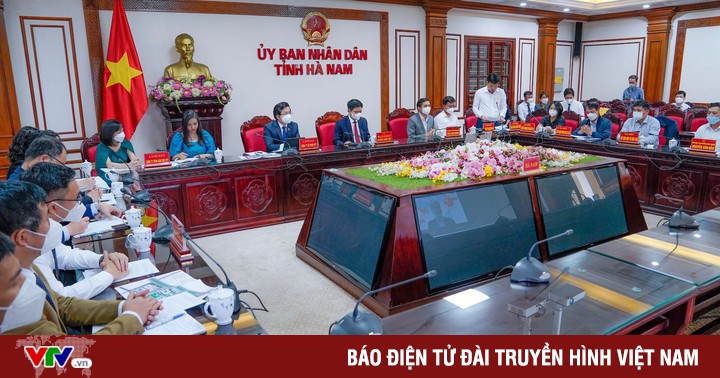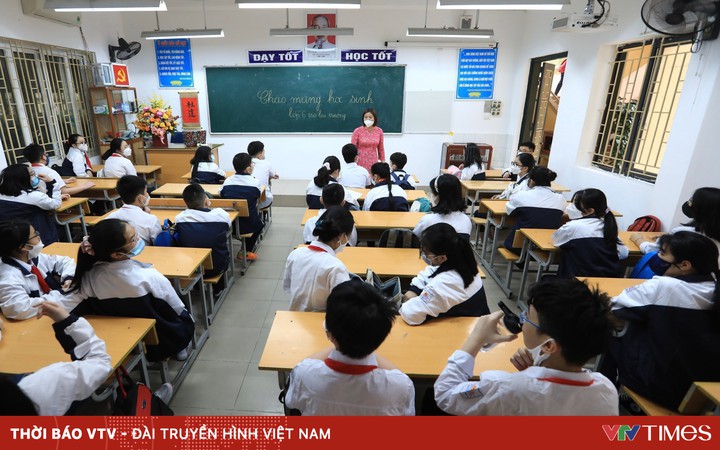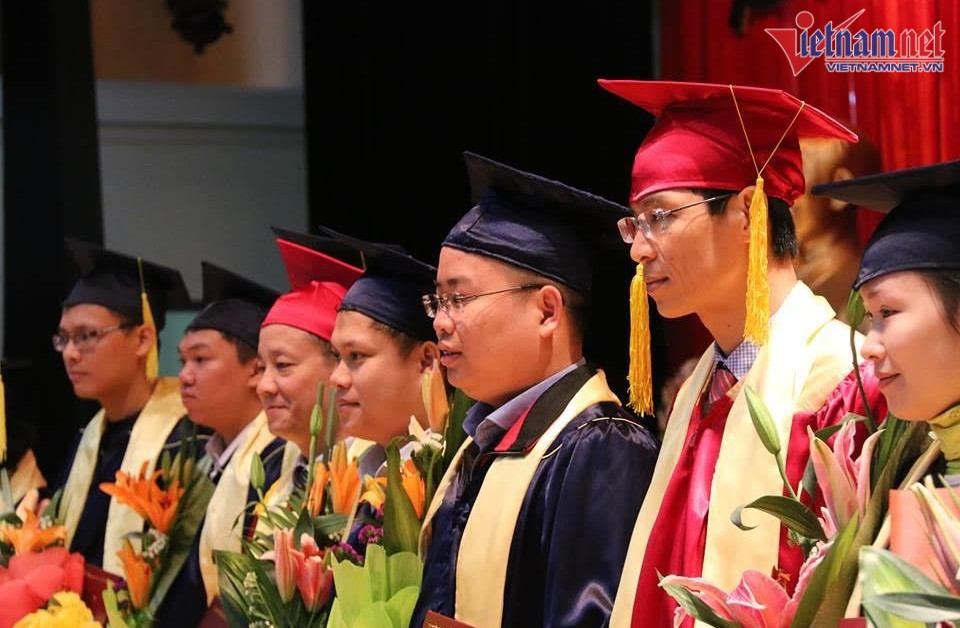The story of the youngest associate professor in Vietnam

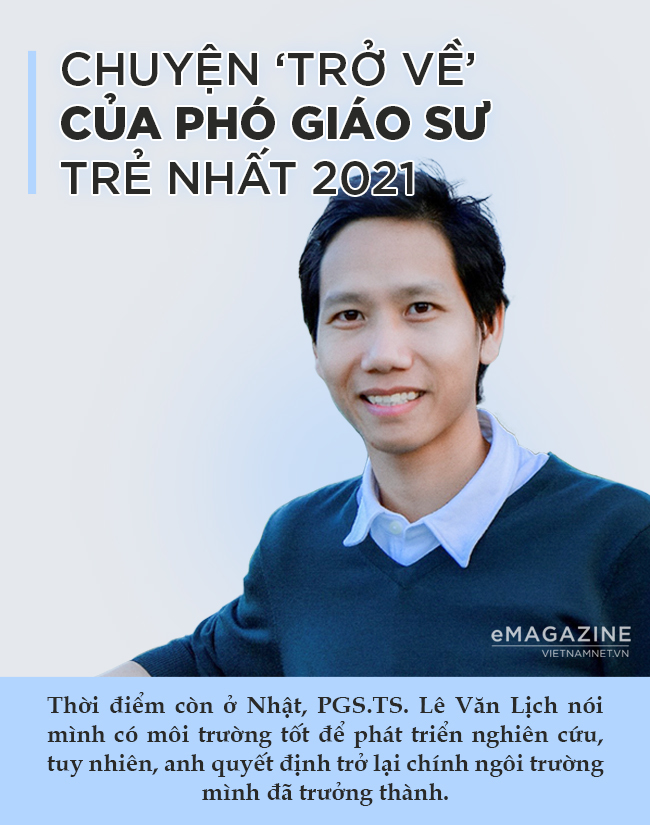
Among the qualified candidates for the title of associate professor in 2021, Dr. Le Van Lich (born in 1988), a lecturer at the Institute of Materials Science and Technology, Hanoi University of Science and Technology is the youngest.
He is an alumnus of the School of Mechatronics, graduated with a master’s degree here, then worked as a PhD student at Kyoto University (Japan). His research direction in the past time has focused on developing and using phase field model to study the mechanical and physical properties of materials.

In 2017, after 3 years as a doctoral student and 1 year of postdoctoral research in Japan, in the midst of a flourishing career, many people were surprised when Lich intended to return to Vietnam.
“Many people ask me about the reason for this decision. Actually, during the previous year, I thought a lot about my next direction. I think that staying in an all-too-familiar place after graduation – work can go on more smoothly – has the long-term disadvantage of being easy to get into a rut in accessing new research topics. Over time, the research direction may gradually narrow. Therefore, I look forward to a transition to challenge myself and find a direction of independent research.”
In fact, at that time, there was a lot of recruitment information for post-doctoral research positions close to the research field of Calendar in some other developed countries such as the US, UK, Germany, etc. Before many turns, Mr. expressed this concern to his guiding professor in Japan (Prof. Takayuki Kitamura).
“At that time, the teacher shared with me that each person will then choose a place to devote all their energy and abilities. Previously, he chose to stay in Japan despite having worked at NASA (USA) because he felt that his contributions here were more meaningful. That statement made me think a lot.”
At the same time, Hanoi University of Science and Technology had a target of recruiting lecturers. Without hesitation, he decided to return to the same school where he grew up.
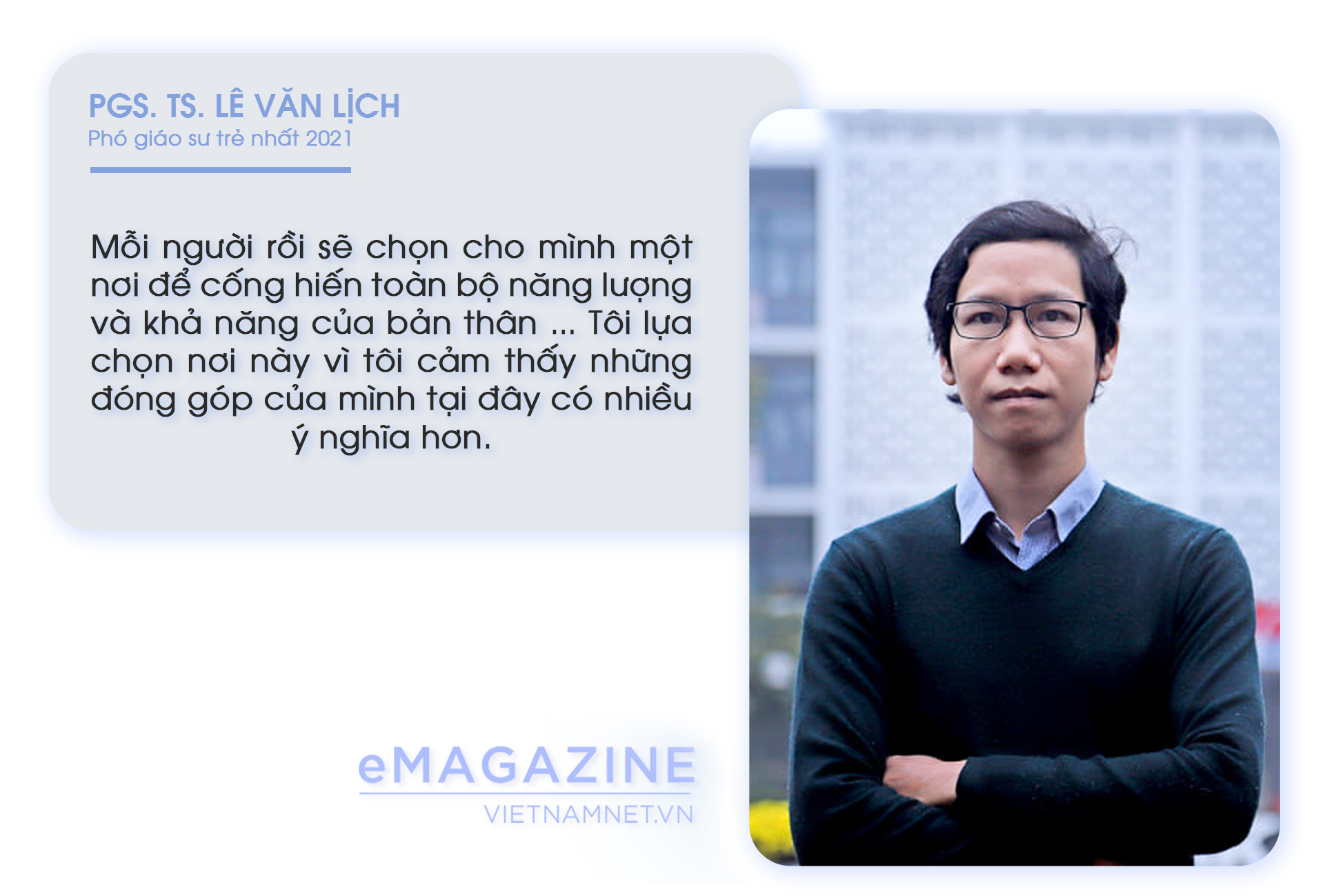
He admitted, before deciding to return, he himself had to calculate very carefully, even prepare a savings amount, in case of difficulties in the first time when returning home, the problem of Financial issues will not create additional barriers to other jobs. He also flew back to Vietnam a few times to find out in advance the working conditions as well as the research environment.
Lich said that many universities and research institutes in the country are creating good conditions and policies to attract young capable scientists who are abroad to return to work. Therefore, during this period, returning to the country to continue doing scientific research is also an option worth considering, of course, must be based on a proper assessment of the difficulties and opportunities in each field. specific area.

Although he has prepared quite carefully, he himself still encounters “falls”.
“The first year when returning home is probably the most difficult. At that time, Hanoi University of Science and Technology was in the transition to an autonomous mechanism, so policies to support newly recruited lecturers were not as numerous as now. I remember, I had to use my living expenses with my previous savings. After that, every 2-3 months of salary, I collect to buy a computer to build a research team.”
However, the biggest difficulty lies in how to find an independent research direction.
“Continuing to maintain the research direction of the previous instructor, it is actually convenient because the research topic is still many, but I think that if I continue in that direction, it will be difficult for me to make progress. significant in scientific research”.
Therefore, throughout 2018, he spent a lot of time looking for new research directions. In addition, he also participates in cooperation with other research groups. Work pressure along with unscientific rest made Calendar’s health seriously decline, and it took a long time to recover.
“After that event, I realized that I needed to find a more sustainable development direction”, Assoc. Calendar recall.
A year later, the group of Assoc. Calendar started applying for research projects, implementing cooperation with a number of businesses and received some valuable support from the host unit. He also found a separate research direction related to the phase-field numerical simulation method, which is also the direction he is continuing to pursue and develop.
This is a new research direction both in Vietnam and around the world at the moment. Recently, a number of research groups in the field of Materials Mechanics in the country have also begun to approach this method. However, the direction of PGS. A more specific problem-solving calendar, focusing on multifunctional materials.
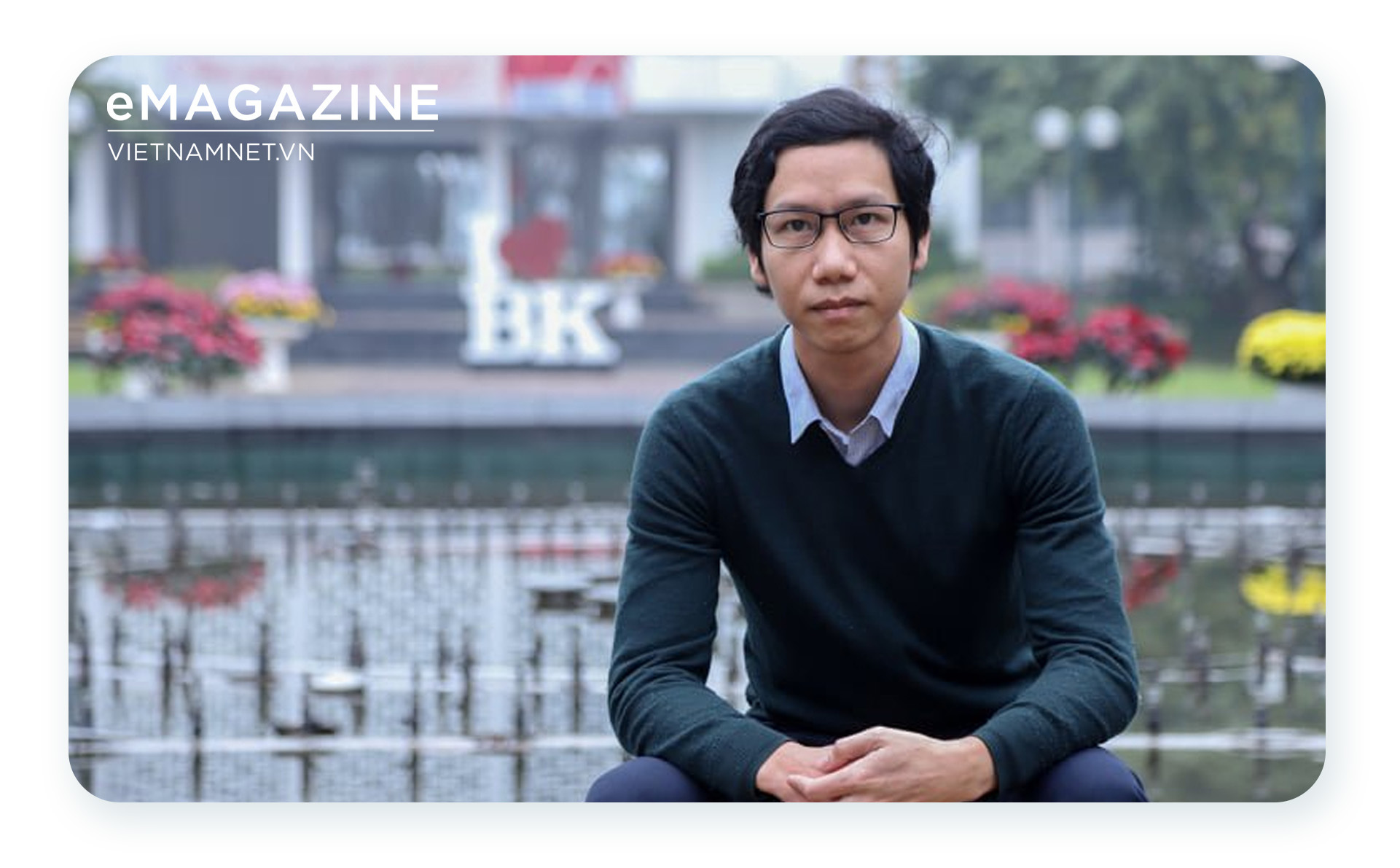
In the next phase, the group of Assoc. Calendar continues to develop the method of numerical phase-field simulation because he realizes that this is a research direction that has many gaps and is also a powerful and useful tool to study many physical phenomena occurring in materials that are often not observed by current experimental methods.

Lich also wishes to cooperate with other scientists in the country, building a strong Vietnamese “phase field” community instead of maintaining small research directions like the present.
He believes that, at present, the competition in the rankings of universities, on the one hand, helps universities to see the shortcomings to improve, but on the other hand, unintentionally creates a trend of localization in research. . Therefore, what he wants is that scientists in the near fields can implement more synergistic cooperation to create more valuable research results and products, serving the interests of the community. .
Of course, this takes a lot of time, effort, and patience on the part of research teams to really understand each other’s capabilities and find common interests, but Assoc. Lich said, “If we don’t start doing it right away, it will be a long time before we can form such a scientific community”. In fact, at present, the number of experts in each field is not much. This creates significant obstacles to the development of science in the country.
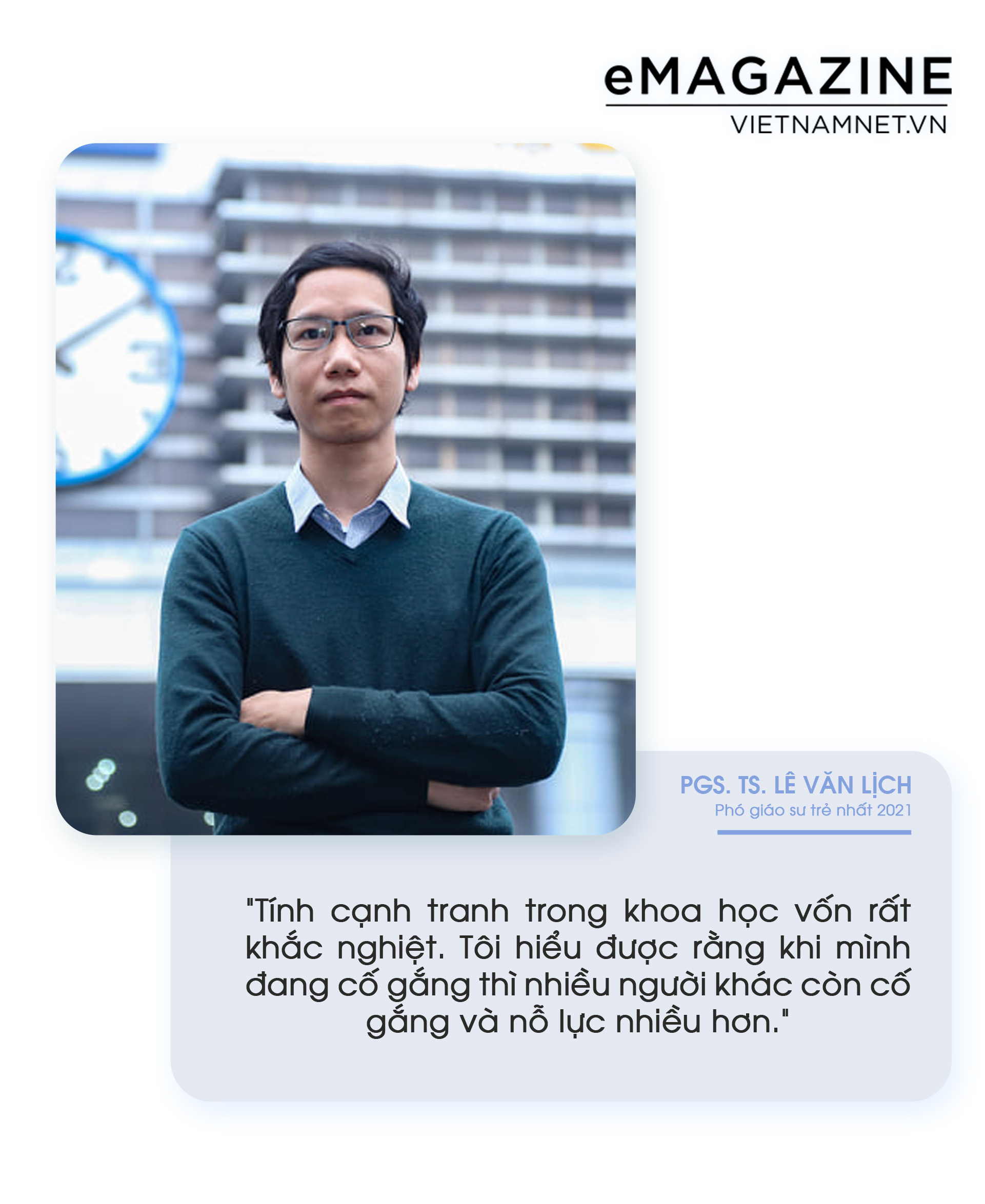
Along with expanding the scope of the group’s research activities and aiming for valuable scientific products, another goal he spends a lot of time on is the training of quality human resources, in which the goal More specifically, students from the first year can participate in scientific research activities.
“This I have learned from my own experience. In the learning environment at high school, students are closely cared for by their families and teachers, but when they go to university, they are required to be more proactive, sometimes having to make many important decisions themselves. important even though they have not been trained for these things.”
Lich recalls his own story – a student from Ninh Binh who also “lost his way” during his freshman year. But then, some family events happened that made him rethink everything.
“The most fortunate thing for me was that at that time, some professors in the department had just returned to the country and established research groups. At the end of 2008, around the third year of university, I joined a research group related to Materials Mechanics. Research excites me. That period of time also helped me a lot for my scientific research journey later on.”
Assoc. Calendar believes that training people is always a matter of time and effort of both teachers and students, so it is necessary to create opportunities for students to participate in scientific research early.
“Of course, when I recruited students to join my research group, I didn’t put too much emphasis on them having to produce a new research result. What I hope is that they will learn in a serious working and research environment, get early exposure to real jobs in production enterprises, thereby learn working skills. and have the skills to train themselves, develop their own capacity, and prepare for future job selection decisions”, Assoc. Calendar says.
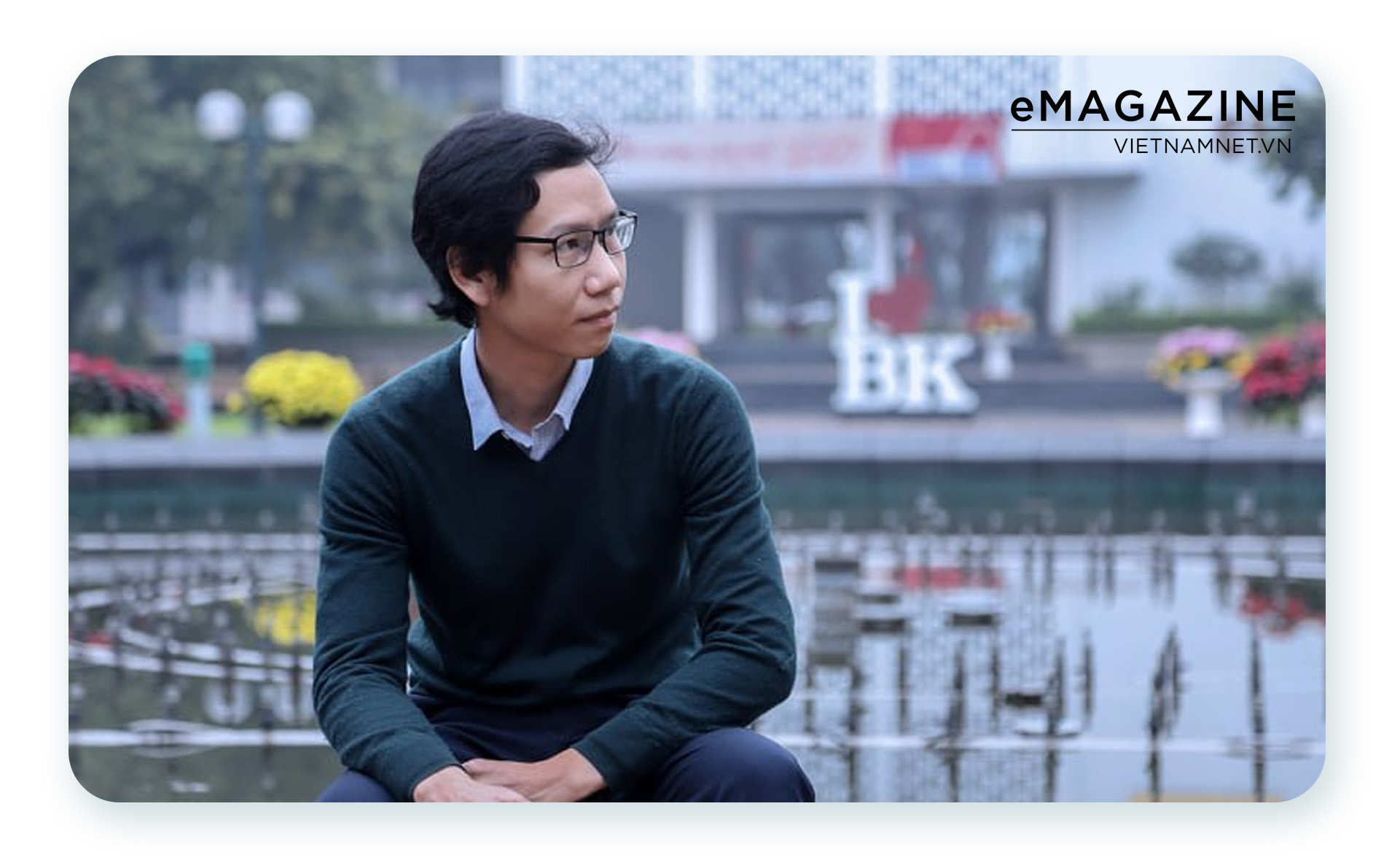
Returning to the “joy of the beginning of the year” when becoming the youngest associate professor in Vietnam in 2021, Assoc. Le Van Lich believes that the most important thing for a person doing scientific research is what impact the research results have on the professional field and what positive value they create for the community and society. .
“Competition in science is inherently tough. I understand that when I am trying, many other people are trying and trying harder.
I respect and admire people who always devote all their heart, mind and energy to their work in order to bring positive values to the community and society. This also gives me a lot of motivation to continue trying on the chosen path to make meaningful contributions to the community.”
Thuy Nga
Design: Phuong Thu
at Blogtuan.info – Source: vietnamnet.vn – Read the original article here

